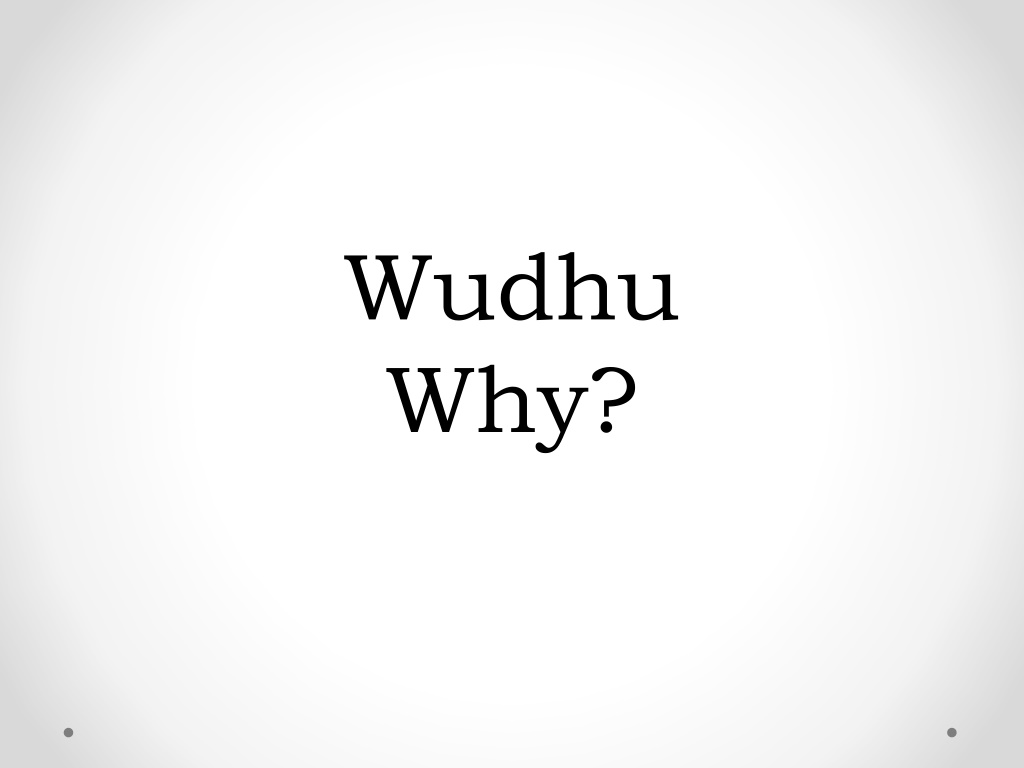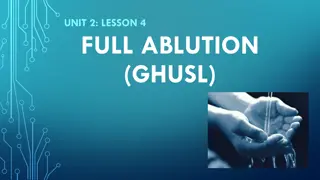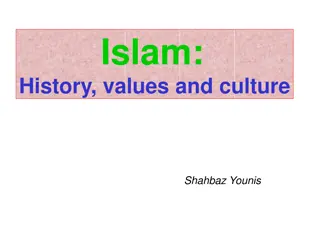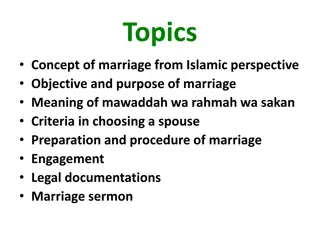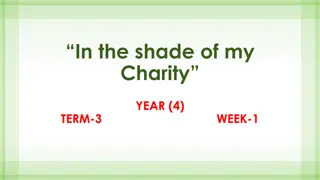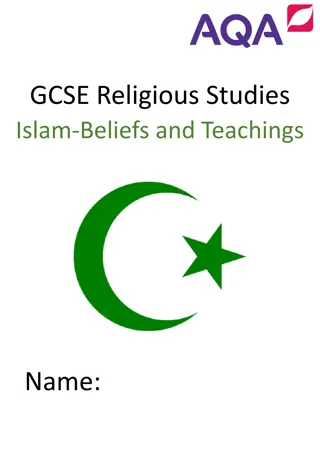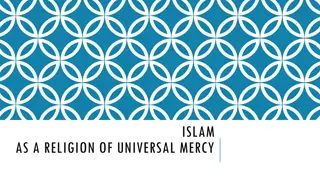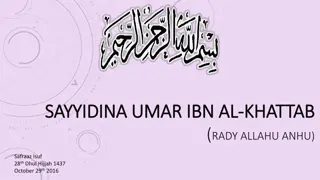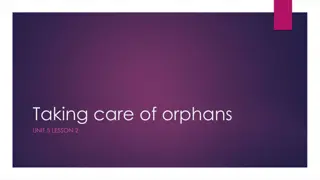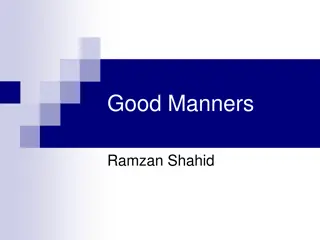Importance of Wudhu (Ablution) in Islam
Wudhu, or ablution, holds a significant place in Islam as it is a prerequisite for prayer. The Prophet Muhammad (saw) and Imams emphasized the importance of purity in prayer, highlighting the spiritual and practical benefits of performing wudhu. Through verses from the Quran and teachings of the Imams, believers are encouraged to maintain cleanliness through wudhu before prayers and even after meals, symbolizing purity before the Almighty. The act of wudhu not only cleanses the body but also purifies the heart, strengthening the connection between the worshipper and the divine.
Download Presentation

Please find below an Image/Link to download the presentation.
The content on the website is provided AS IS for your information and personal use only. It may not be sold, licensed, or shared on other websites without obtaining consent from the author. Download presentation by click this link. If you encounter any issues during the download, it is possible that the publisher has removed the file from their server.
E N D
Presentation Transcript
Wudhu Why?
O you who have faith! When you stand up for prayer, wash your faces and your hands up to the elbows, and wipe a part of your heads and your feet, up to the ankles Sura Maida verse 6
Imam Baqir (as): There is no prayer except with purity (wudhu)
: " " Narrated from the Commander of the Faithful: Teach your young children the prayer
( :) The young boy should be ordered to pray at nine years of age
Imam Reza (as) : Regarding the reason for ablution, said, so that the servant is pure when he stands before the Mighty one when engaged in supplication to Him,
Holy Prophet (saw): Wudhu is half of the faith
Imam Sadiq: Wudhu before meal and after meals drives away poverty
Confining it (the wudhu) only to the face, the two hands, the head and the two feet was because when the servant stands before the All- powerful, the parts which are exposed are those which are ordered to be washed in the wudhu
As with his face he performs the sujud While washing the face, one should say: O Lord! Make my face bright on the Day when the faces will turn dark. Do not darken my face on the Day when the face s are bright.
If we look at the fiqhi aspect the length of the face should be washed from the upper part of the forehead, where the hair grows, up to the farthest end of the chin and its breadth should be washed to the part covered between the thumb and the middle finger.
With his hands he requests, desires, dreads and supplicates While pouring water over the right elbow, one should say: O Lord! Give my book of deeds in my right hand, and a permanent stay in Paradise on my left, and make my reckoning an easy one.
While pouring water over the left elbow, one should say: O Lord! Do not give my book of deeds in my left hand, or from behind my back, nor chain it to my neck. I seek refuge in You from the Hell-fire. As for the hands, from the elbow to the tips of the fingers
With his head, he inclines to Him in his Ruku and his sujud While performing the wiping of the head, one should say: O Lord! Cover me with Your Mercy, Blessings and Forgiveness.
After washing both the hands one should wipe the front part of his head with the wetness which is in his hand; the recommended precaution is that he should wipe it with the palm of his right hand, from the upper part, downwards. The part on which wiping should be performed, is one fourth frontal part of the head. It is sufficient to wipe as much at any place in this part of the head, although the recommended precaution is that the length should be equal to one finger and its breadth should be equal to three joined fingers.
And with his legs he stands and sits. While performing the wiping of the feet, one should say: O Lord! Keep me firm on the Bridge (to Paradise) on the Day when the feet will slip, and help me in my efforts to do things which will please You, O' Glorious and Mighty!.
After wiping the head, one should wipe with the moisture present in one s hand to one s feet from any toe of the foot up to the joint. As a recommended precaution, the right foot should be wiped with the right hand and the left foot with the left hand. Wiping of the feet can have any breadth, but it is better that the breadth of the wiping should be equal to three joined fingers and it is still better that the wiping of the entire foot is done with the entire hand.
Relate wudhu to Allah for the kids
